.svg)
This master's is for those who see connections, not boundaries. If you thrive on connecting ideas between the arts, sciences, and humanities, this is your degree.
At The London Interdisciplinary School, you'll learn to apply our unique methods and perspectives to tackle complex problems that matter to you.
Discover our master’s in Interdisciplinary Problems and Methods (MASc).
Master's degree (MASc)
Leo laoreet eget scelerisque consequat viverra et tellus. Leo laoreet eget scelerisque consequat viverr.
September 2026
Leo laoreet eget scelerisque consequat viverra et tellus. Leo laoreet eget scelerisque consequat viverr.
2 years
Leo laoreet eget scelerisque consequat viverra et tellus. Leo laoreet eget scelerisque consequat viverr.
£7,000 / year
Leo laoreet eget scelerisque consequat viverra et tellus. Leo laoreet eget scelerisque consequat viverr.
Remote-first
Leo laoreet eget scelerisque consequat viverra et tellus. Leo laoreet eget scelerisque consequat viverr.
8-10 hours per week
Leo laoreet eget scelerisque consequat viverra et tellus. Leo laoreet eget scelerisque consequat viverr.
Master’s degree (MASc)
Leo laoreet eget scelerisque consequat viverra et tellus. Leo laoreet eget scelerisque consequat viverr.
September 2026
Leo laoreet eget scelerisque consequat viverra et tellus. Leo laoreet eget scelerisque consequat viverr.
1-year
Leo laoreet eget scelerisque consequat viverra et tellus. Leo laoreet eget scelerisque consequat viverr.
£14,000 / year
Leo laoreet eget scelerisque consequat viverra et tellus. Leo laoreet eget scelerisque consequat viverr.
Campus-first
Leo laoreet eget scelerisque consequat viverra et tellus. Leo laoreet eget scelerisque consequat viverr.
Full-time
Leo laoreet eget scelerisque consequat viverra et tellus. Leo laoreet eget scelerisque consequat viverr.
.svg)
MASc in Interdisciplinary Problems & Methods
Complex problems require an interdisciplinary approach. Their solutions will not come from a single subject or specialism. At LIS, this interdisciplinary problem-solving is exactly what we do. And our master’s students become experts at it.

At the heart of our I nterdisciplinary Master’s degree you’ll find three things: interdisciplinary methods, complex problems, and the opportunity to work on the things that matter to you.
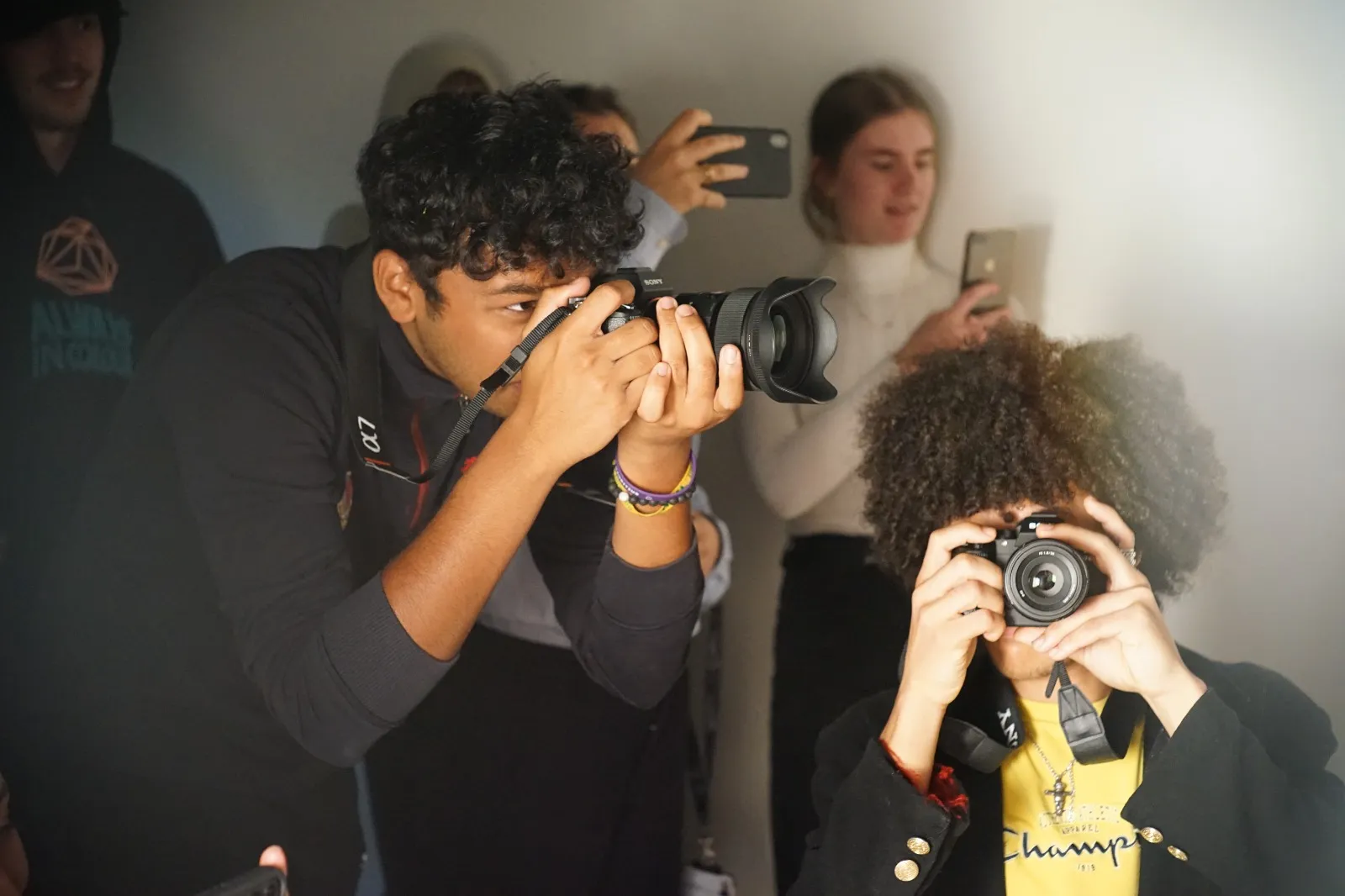
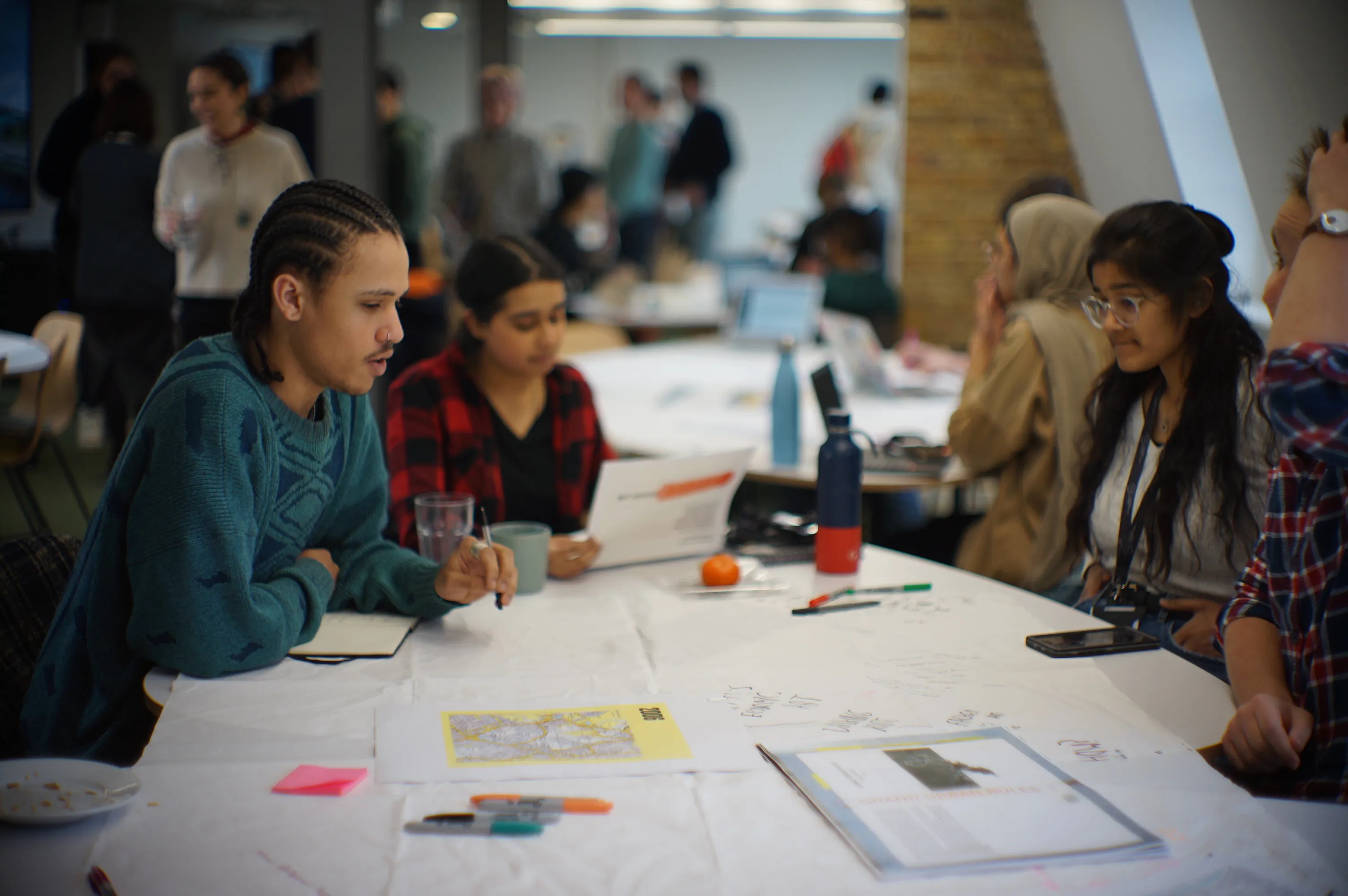

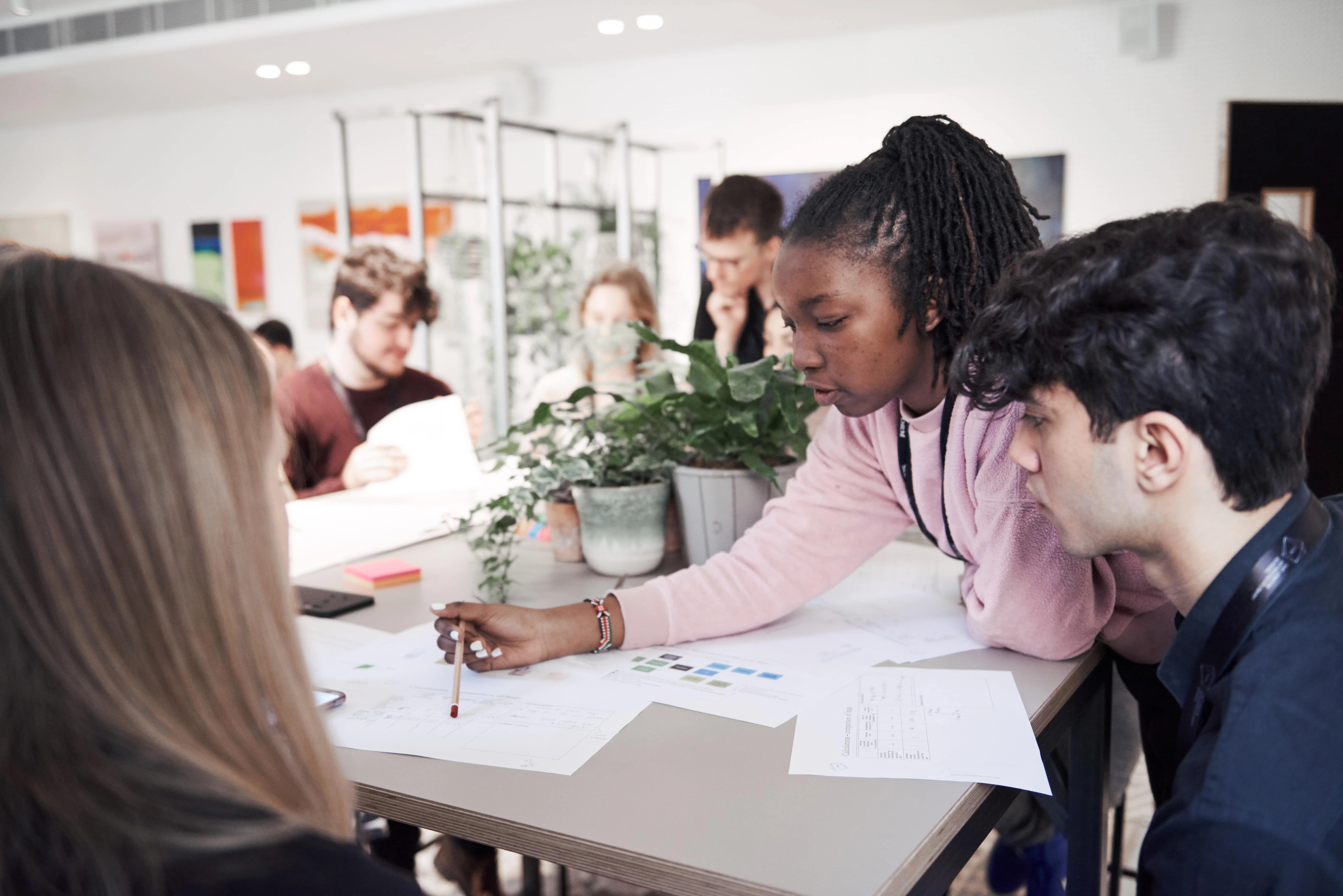

-DesignMarketing.webp)
.svg)
Careers and development
Our careers offering for master’s students revolves around three key pillars:



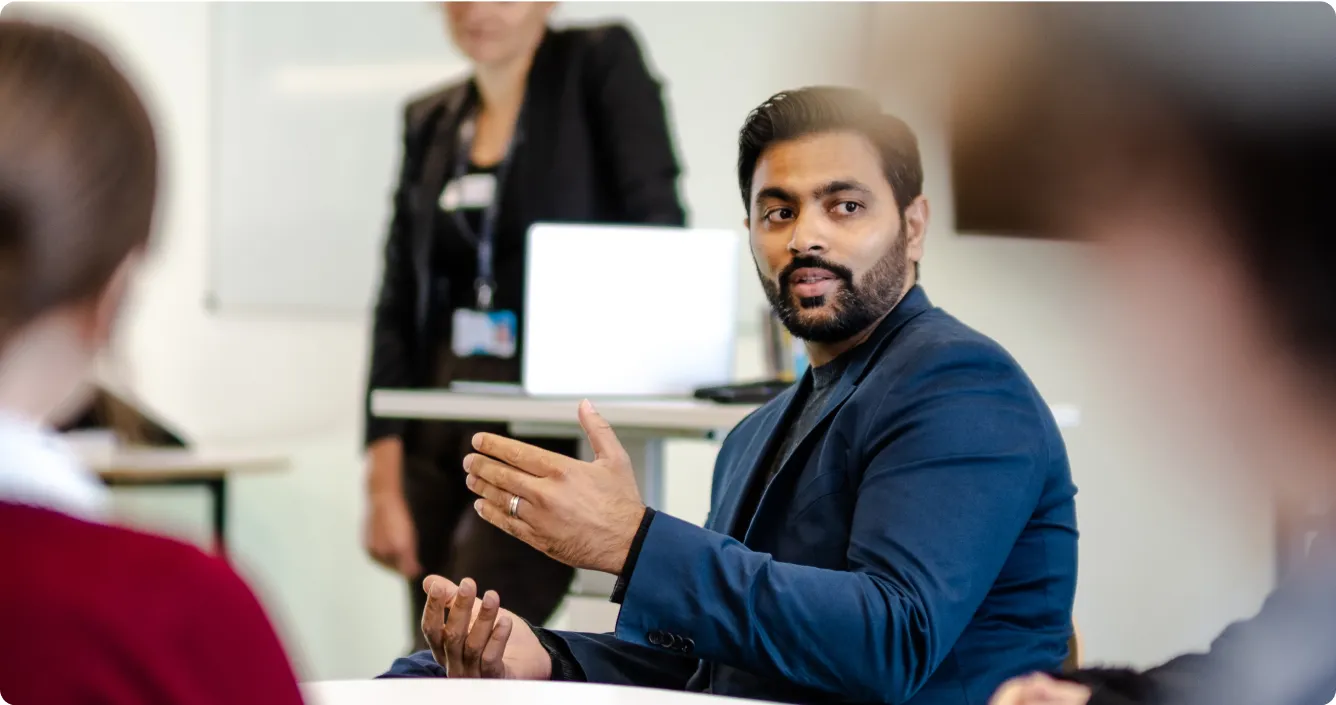
.svg)
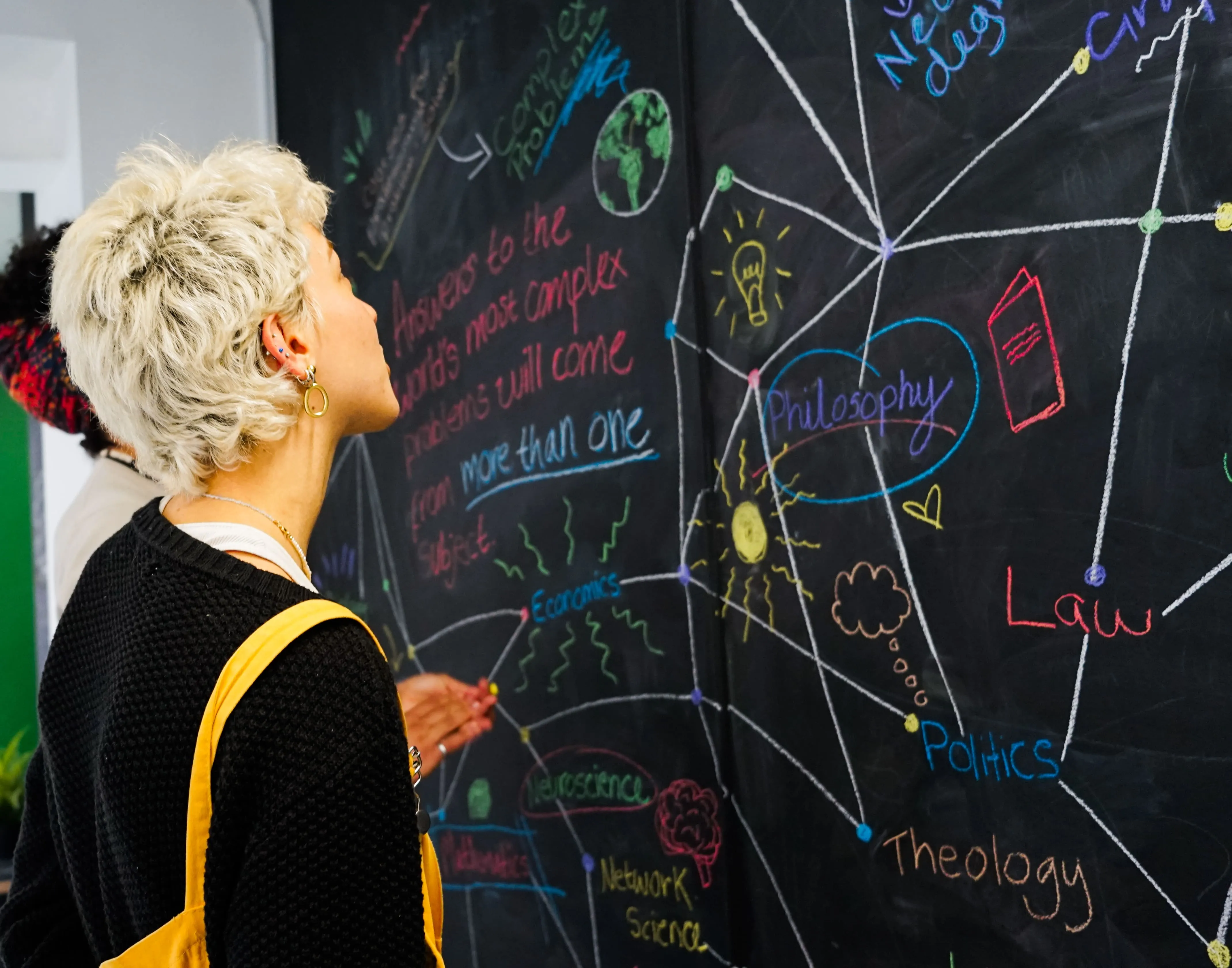
.svg)
“The interesting thing about setting up a business is that it’s a series of problem-solving. What you need is an ability to focus in on a problem, pull back out, and connect the dots across the space. And that’s what the master’s is doing. For me, it’s exactly the kind of thing I wish I had done before I set up my first business.”
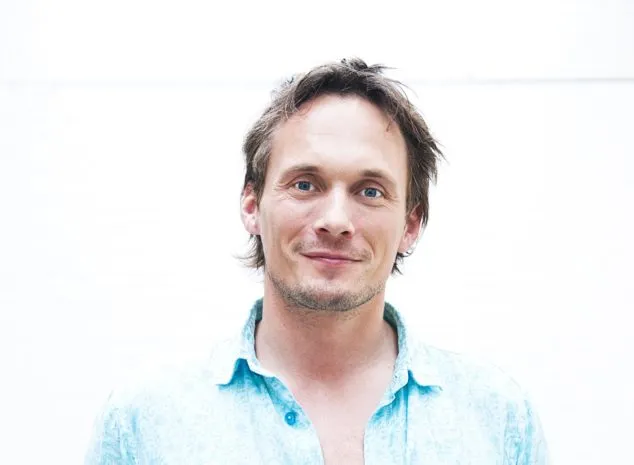
Richard Reed
Co-founder, Innocent Drinks
Why interdisciplinarity?
Learn to build on skills and knowledge from across multiple disciplines, unlock your interdisciplinary problem-solving potential, and apply it to the real world.
.svg)
The curriculum
The core of the programme acts as an intense problem-solving bootcamp of sorts, where you’ll learn key qualitative and quantitative skills and interdisciplinary methods to help you tackle a range of real-world complex problems.
.svg)
During this degree, participants will concentrate on one out of three problem areas: digital worlds, human sociality, and environmental sustainability.
The emergence of artificial intelligence (AI) promises to be a phase change in human history. This module will explore the ramifications of this change in two areas: ethics and aesthetics. We will rigorously think through the impact of AI on human creative and regulatory practices, with specific emphasis on the moral, social, and psychological dimensions of each.
Designing for Life considers the integration of environmental sustainability and social equity into the design and planning of spaces, fostering communities that are both ecologically harmonious and socially inclusive.The holistic consideration of both ecology and social aspects in our environment is crucial, emphasising the need to integrate these elements seamlessly to ensure a sustainable and equitable future.
Acting Human deals with human social technologies. How do we successfully coordinate our individual interests with those of larger groups like families, organisations, states, and other social coalitions? An important strand of the module will look at how imaginative culture (novels, films, dramas) both derives from and expands our powers of social processing.
.svg)
Participants begin by choosing between two introductory modules: Everything Counts (focused on statistics and data science) or Cracking the Code (teaches python through data science). They will then go on to complete three additional core methods modules: Re:Form (visual analysis and communication), The Right Word (advanced communication and framing), and Trials and Errors (experimental design and evaluation).
This elective will introduce you to the basic principles of scientific knowledge and experimental design, and help you to start building your scientific literacy in terms of planning, executing, critiquing and understanding scientific literature. You’ll learn about different types of quantitative methods, the scientific method, and how this approach to research can enhance our understanding of real-world complex problems.
Knowledge and skills:
- Scientific method
- Building block of empirical research
- Ethics in experimental research
- Plan, execute, critique and understand scientific literature
Re:Form will teach students how to understand visual thinking and the ways in which media (photography, 3D modelling, illustration) help us communicate.
To do this, students will look at how visual media can be created, analysed and archived - from both a qualitative and quantitative perspective. Qualitative approaches centre on learning to interpret, read and curate visual media. Quantitative approaches will allow students to use their coding knowledge to engage with images at speed and scale.
Knowledge and skills:
- Media analysis
- Art
- Programming (python)
Cracking the Code teaches python through data science. Students will learn to code by engaging in practical applications of python libraries as they relate to data science problems. We’ll also encourage students to think about the role of data science in tackling complex problems, considering the ethical and logistical dimensions of what you can actually do using python.
We teach python because it’s the most popular programming language and has a variety of applications including web development and quantitative research. If you’re going to learn one coding language, we think it should be python. But if you already know python, you can learn another language (e.g., R).
Knowledge and skills:
- Programming (python)
- Data science
The Right Word aims to demonstrate how language can be produced and analysed using insights from linguistics. This will involve exploring the meaning of language (semantics) and its function in social context (pragmatics). The module will also explore narrative as a powerful tool in communication e.g., storytelling.
This module will also teach students the basics of methods in natural language processing (NLP). NLP allows language data to be manipulated at speed and scale, and is behind many of the advances in AI that have occurred recently.
Knowledge and skills:
- Linguistics
- Natural language processing (NLP)
- Storytelling
Everything Counts is a quantitative module that acquaints students with different approaches to statistics (Bayesian and Frequentist).
These approaches represent two interpretations of how we can use numerical data to answer questions and inform decision-making.
It will also deal with how data can be used to tell a story, including studying the essentials of data visualisation.
Knowledge and skills:
- Statistics
- Mathematics
- Critical thinking
.svg)
Throughout your studies, you will take modules on complexity and integration. These modules are compulsory for every student.
This module will introduce students to the topic of complexity as it is understood in the quantitative sciences. Starting with mathematical fundamentals, students will be exposed to concepts from cellular automata, dynamical systems, and information theory.
This module will allow learners to discern high-level patterns of behaviour in seemingly dissimilar systems. On the one hand, this will allow participants to accurately identify and describe similar dynamics in equivalently complex systems. On the other, an appreciation of the nature of complex systems is a prerequisite to influencing such systems.
If interdisciplinary inquiry is to be more than a collection of concepts and methods, it requires us to understand how novel and synthetic results can be achieved by integrating different bodies of knowledge. This module will take a step back from learning in practice and focus on the process of integration, if not dis-integration, in theory.
.svg)
The Capstone Project is where students pursue an original area of research on a problem of their choosing. Students will identify a problem and a set of strategies to tackle it, before creating a professional or industry standard product to communicate what they have found.
To gain a degree in the UK you must pass a certain number of credits in each year of the degree. Each module is given a credit, which you are awarded when you pass each module at assessment.
*The content of our modules is subject to change and approval as we revise our modules each year depending on student feedback and developments in the field.
.svg)
Flexible study options
Deciding to study for a master’s is a significant commitment. It’s important to consider the mode of study and pace at which you are expected to complete the programme.

Part-time, remote-first
Designed for people that have other commitments and/or want to continue to work alongside study. For those that don’t want to regularly commute or live in London.




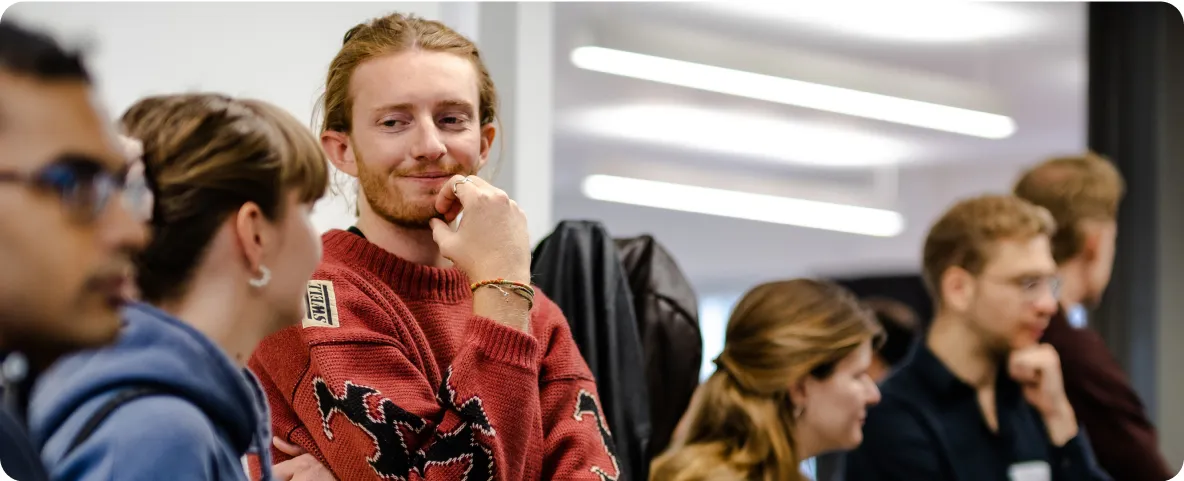
Full-time, campus-first
Designed for those that want an immersive social experience and to complete your master’s in one year. For those that already live in or near London or would like to.





Finance
These are the fees for the 2025/26 academic year.
Find out more about our master's course fees, financing options, and support available through bursaries and grants.
How to apply

September 2025

until we fill places on the course

September 2026
Applications to our master’s interdisciplinary degree are considered on a rolling basis. We will continue to accept applications until we fill places on the degree. In order to secure a place on the course, we’d encourage you to submit your application as soon as possible.






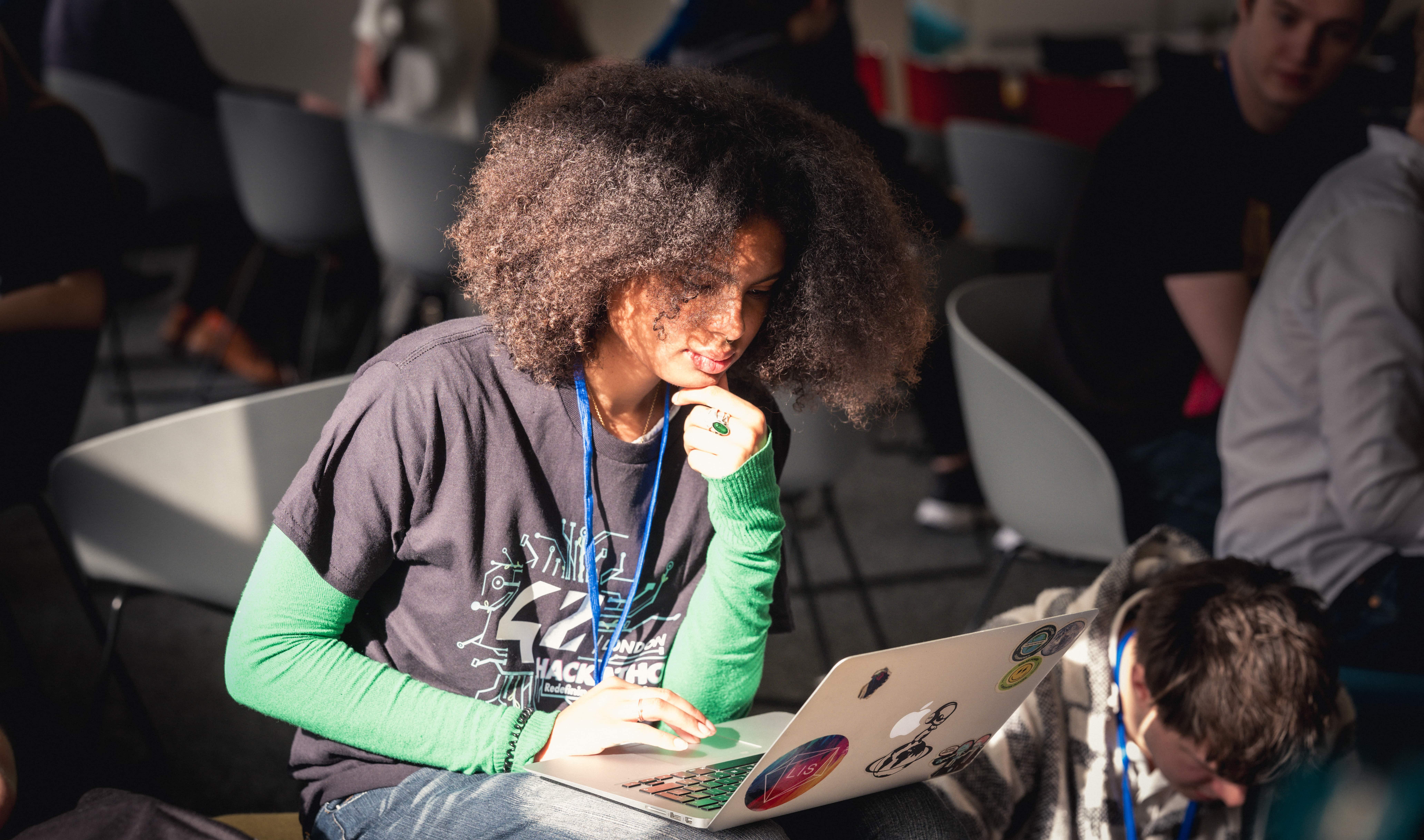

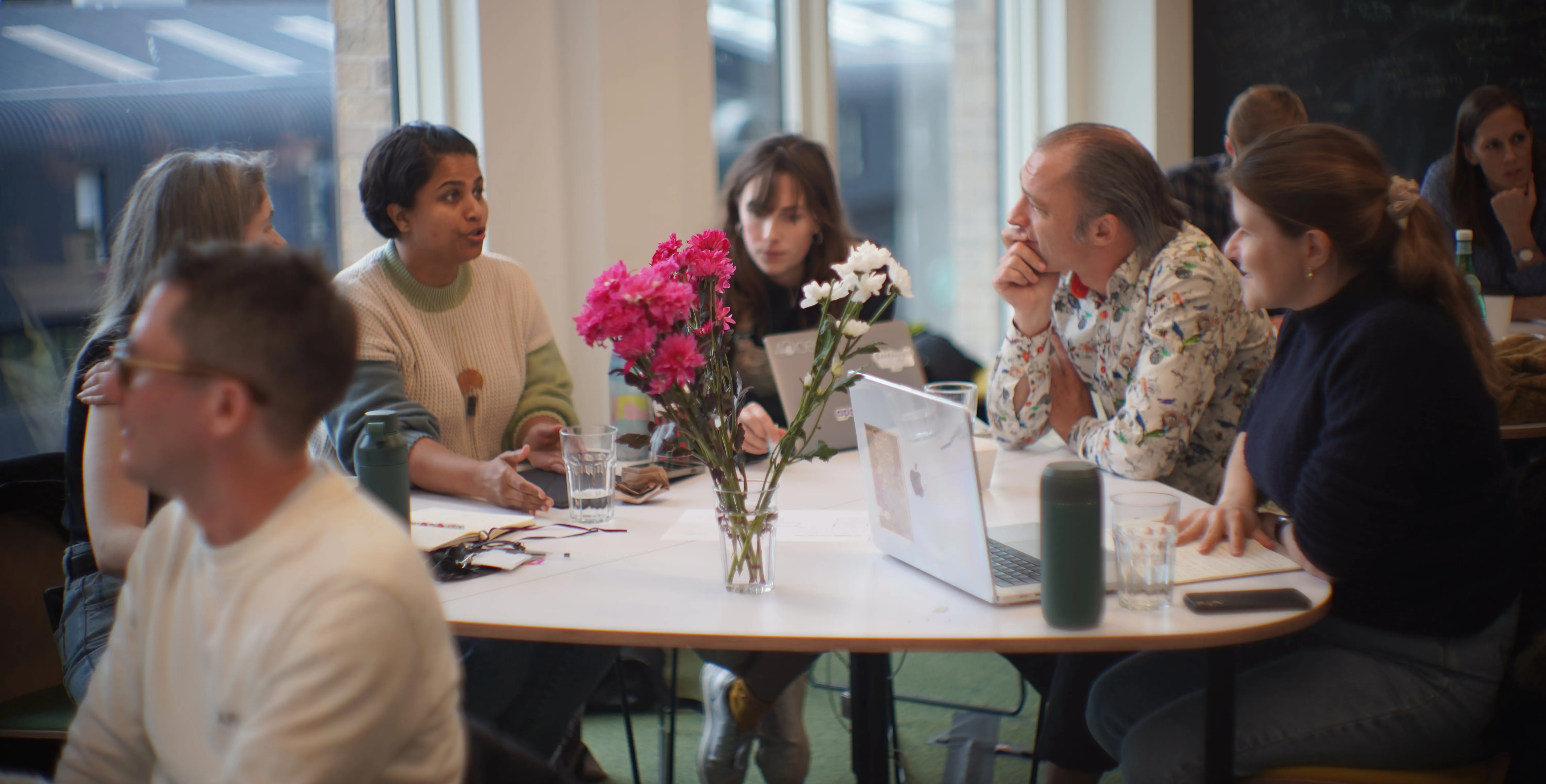
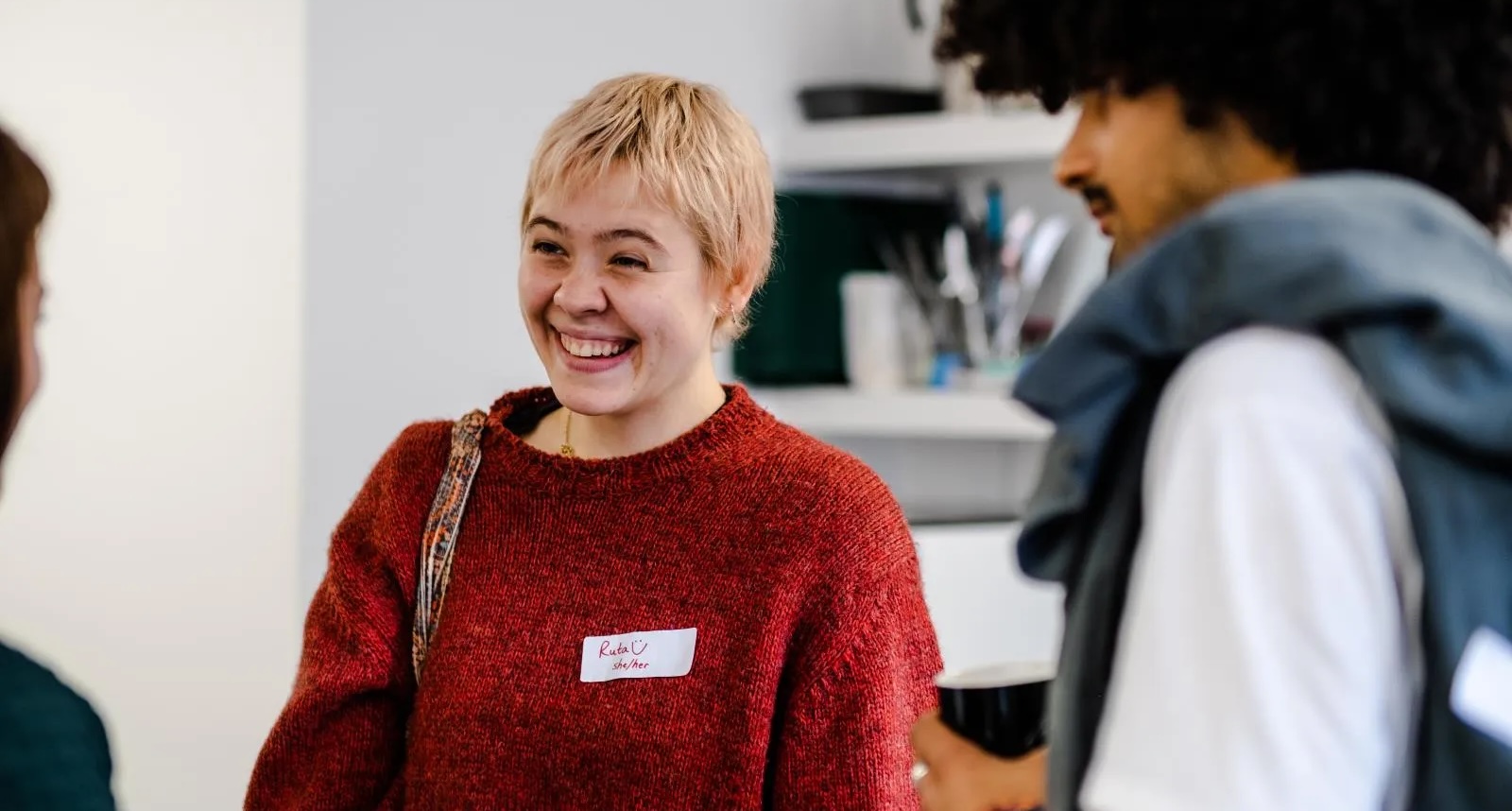
.svg)
.svg)
































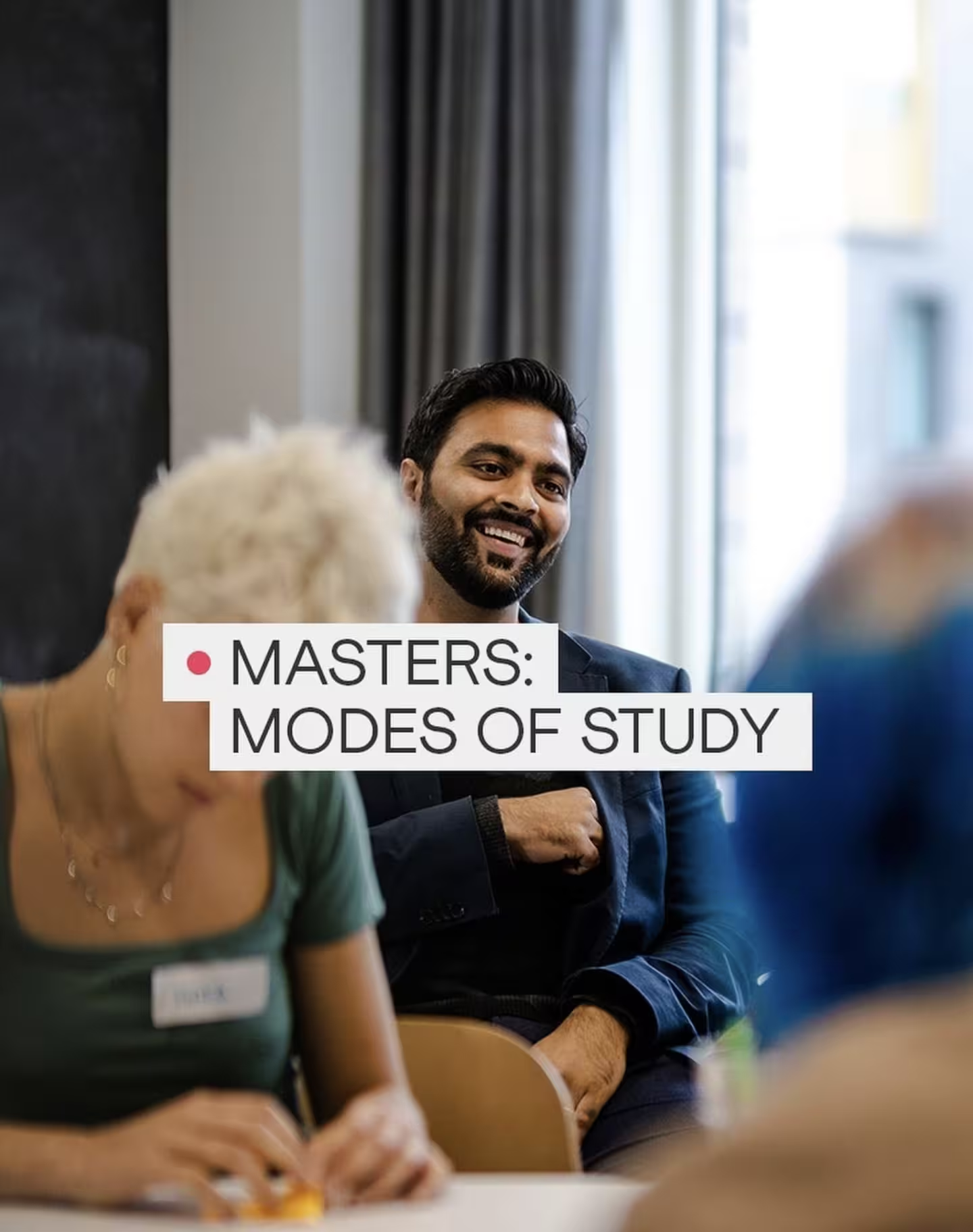
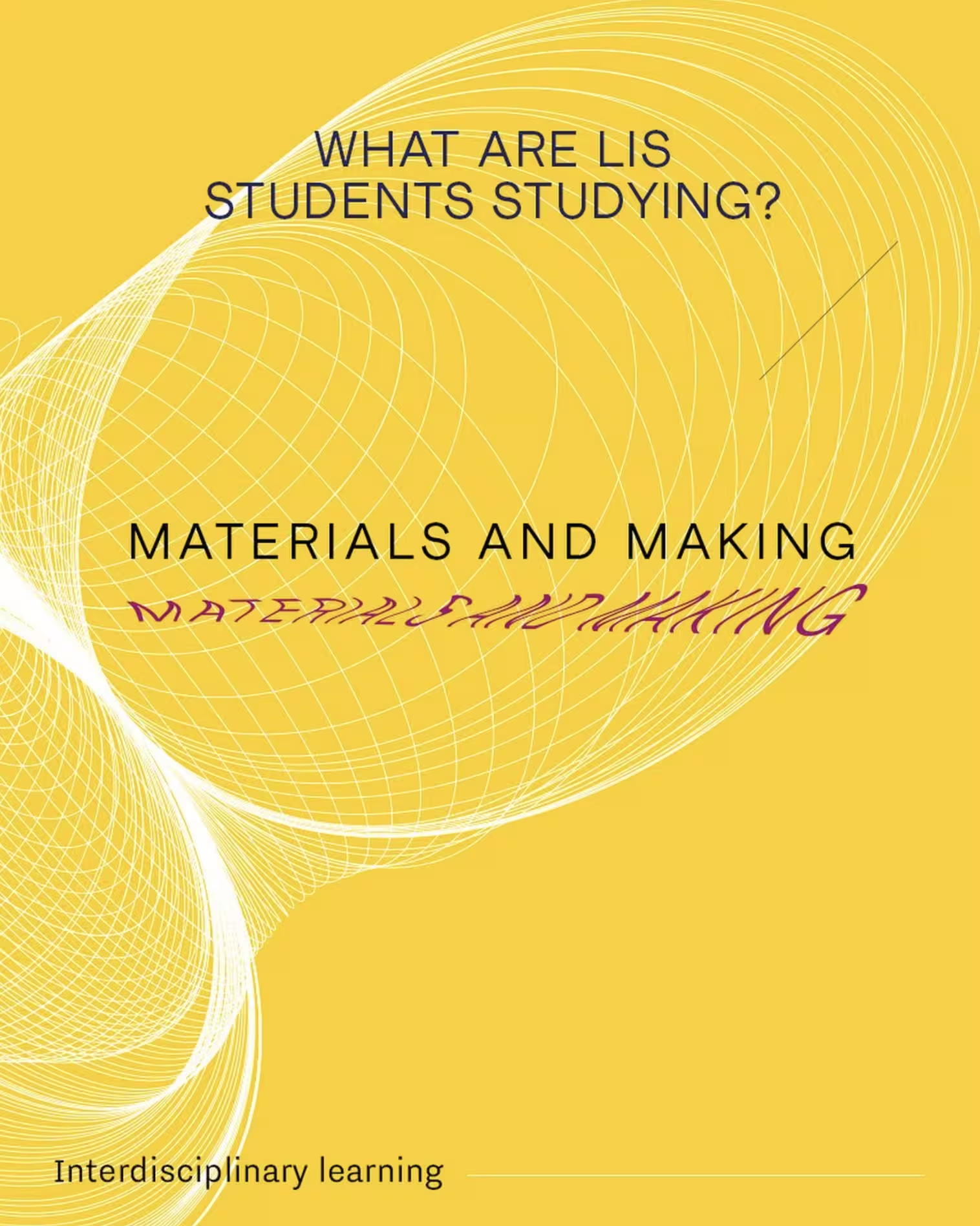
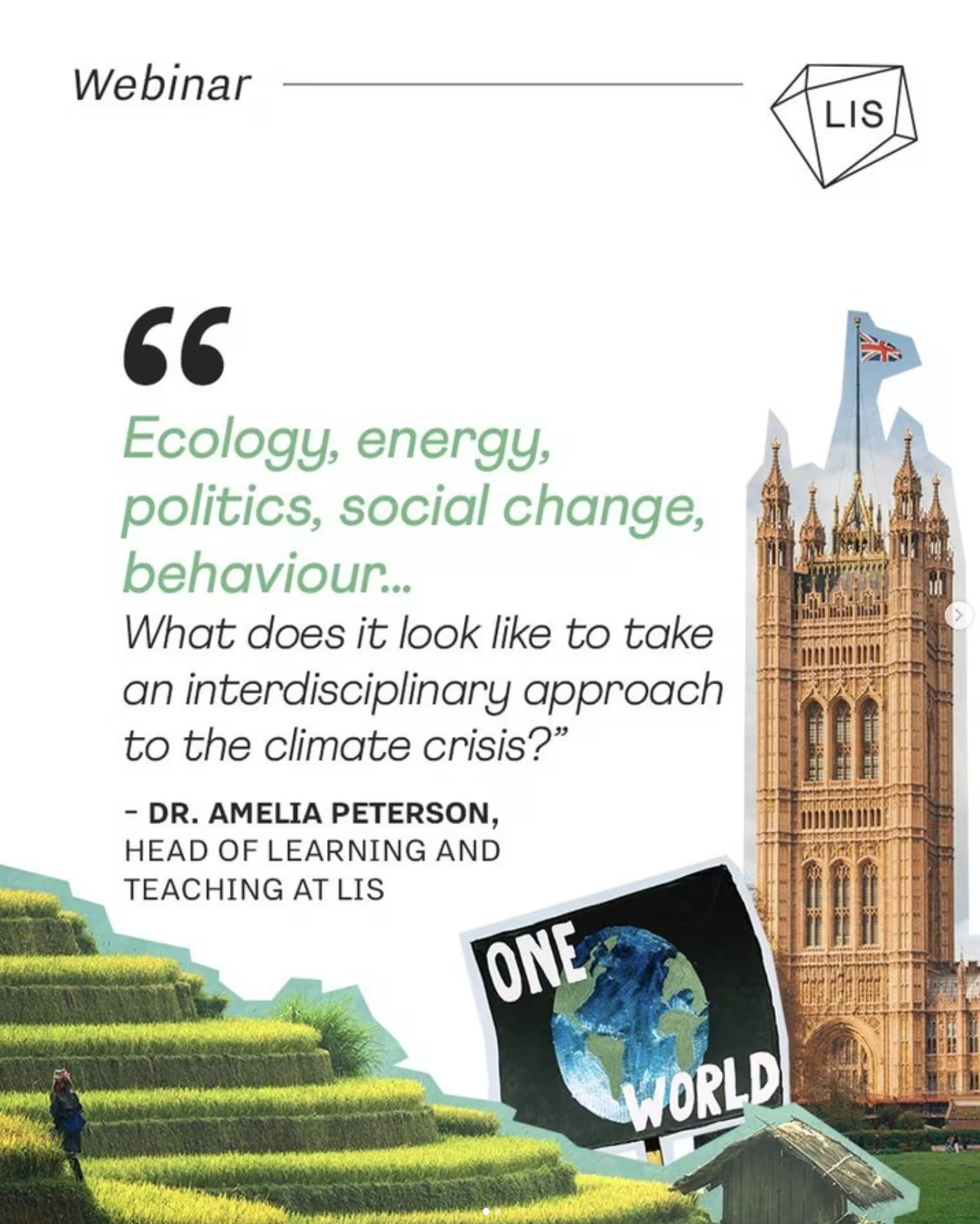






.svg)
